The GOP: A Party in Turmoil
The Republican Party is in total chaos. Democrats aren't there yet but may be approaching the neighborhood. It's time to acknowledge that our political system simply isn't doing its job.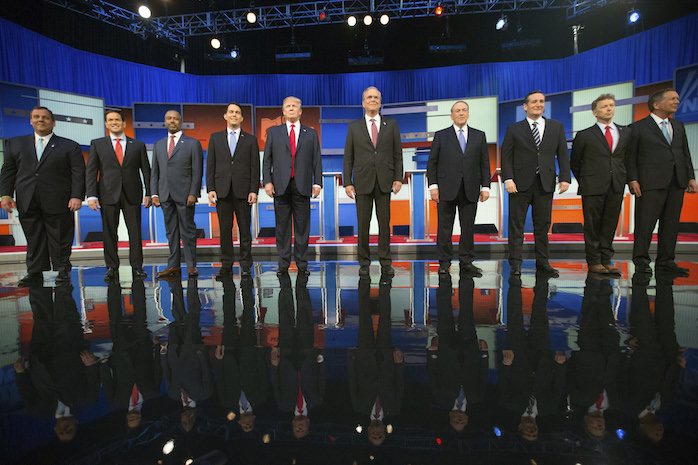 From left, GOP presidential hopefuls Chris Christie, Marco Rubio, Ben Carson, Scott Walker, Donald Trump, Jeb Bush, Mike Huckabee, Ted Cruz, Rand Paul and John Kasich take the stage for their debate in Cleveland last week. (Andrew Harnik / AP)
From left, GOP presidential hopefuls Chris Christie, Marco Rubio, Ben Carson, Scott Walker, Donald Trump, Jeb Bush, Mike Huckabee, Ted Cruz, Rand Paul and John Kasich take the stage for their debate in Cleveland last week. (Andrew Harnik / AP)
The Republican Party is in total chaos. Democrats aren’t there yet but may be approaching the neighborhood. It’s time to acknowledge that our political system simply isn’t doing its job.
Once again, following Thursday’s debate and its messy aftermath, the GOP establishment confidently predicts that the Donald Trump phenomenon is over, done with, finished, kaput. Why, he picked a fight with popular Fox News anchor Megyn Kelly! He bluffed his way through the debate with rhetoric and showmanship rather than policy positions! His campaign organization is in turmoil! He wouldn’t even pledge to support the eventual Republican nominee!
By any traditional measure, Trump is not a viable candidate. Yet he continues to dominate news coverage of the campaign, and thus far there is no indication that his transgressions have caused the plunge in his poll numbers that party pooh-bahs so eagerly anticipate.
As Buffalo Springfield once sang, “There’s something happening here. What it is ain’t exactly clear.” (Ask your parents, kids.)
By one early measure — an online poll for NBC News conducted by the SurveyMonkey firm — Trump maintained his big lead following the debate, with Sen. Ted Cruz of Texas and retired neurosurgeon Ben Carson vaulting into second and third place; businesswoman Carly Fiorina, who dominated the undercard debate, reportedly leapt into the middle of the pack. The numbers in the SurveyMonkey poll are less important than the trend lines: So-called “protest candidates” are capturing voters’ imagination in a way that establishment candidates are not.
Trump, Fiorina and Carson have never held elective office; the basis of their appeal is that they are not professional politicians. Cruz has spent his time in Washington ostentatiously declining to play politics as usual, recently going so far as to call his own majority leader a liar.
At this point, it is fair to say that a significant portion of the party has lost faith in the GOP establishment. It’s also fair to say that this has little or nothing to do with where candidates stand on the issues.
Trump made his initial mark in this campaign with demagoguery about illegal immigration. But with the exception of Jeb Bush, the other GOP contenders have basically the same position: Seal off the border with Mexico, if necessary by erecting a physical barrier.
Carson has compared the Affordable Care Act to slavery. No other Republican in the race uses such over-the-top language, but they all pledge to repeal Obamacare. Cruz vehemently opposes the Iran nuclear agreement. All the Republican candidates feel the same way. Fiorina wants to shrink bloated government. Everybody else does, too.
The irony is that the Republican field includes several candidates who, in theory, could be formidable in the general election. Bush and Sen. Marco Rubio are both from Florida, a state the GOP basically must win to have any chance in the Electoral College. Ohio Gov. John Kasich or Wisconsin Gov. Scott Walker theoretically might be able to pry one or more of the Midwestern industrial states out of Democratic hands.
But the process of quelling the Trump-led insurgency is already boxing the whole field into absolutist positions that will be difficult for the eventual nominee to soften. The longer chaos reigns, I believe, the less room the GOP candidate will have to maneuver.
All of this should make Hillary Clinton very happy. But the Democratic Party and its likely nominee have problems of their own.
To be sure, I’d much rather be playing Clinton’s hand than anybody else’s in either party. In the RealClearPolitics polling averages, she leads her closest opponent for the nomination, Sen. Bernie Sanders of Vermont, by 35 points — and beats every one of her potential GOP opponents in hypothetical head-to-head matchups.
One problem, however, is that her favorability has been going down, according to polls. Another is that while Sanders has made few discernible inroads with key parts of the Democratic Party coalition — especially African-Americans and Latinos — he is within striking distance of Clinton in the first two caucus and primary states, Iowa and New Hampshire.
Sanders is drawing big, passionate crowds, and I believe one reason is that he, too, is kind of an anti-politician — a man who unabashedly labels himself a socialist and refuses to tailor his views to please a given audience.
Significant numbers of voters seem to be demanding authenticity, passion and rough edges from a nominating process designed to produce none of the above. To state the obvious, this could be a wild and unpredictable ride.
Independent journalism is under threat and overshadowed by heavily funded mainstream media.
You can help level the playing field. Become a member.
Your tax-deductible contribution keeps us digging beneath the headlines to give you thought-provoking, investigative reporting and analysis that unearths what's really happening- without compromise.
Give today to support our courageous, independent journalists.
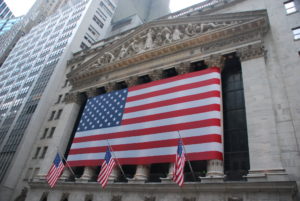
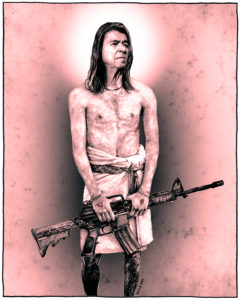
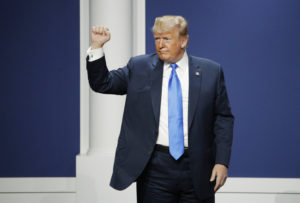
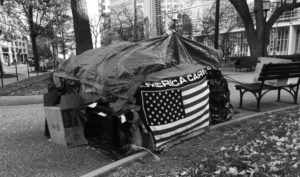
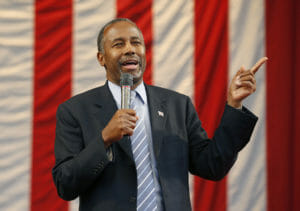
You need to be a supporter to comment.
There are currently no responses to this article.
Be the first to respond.